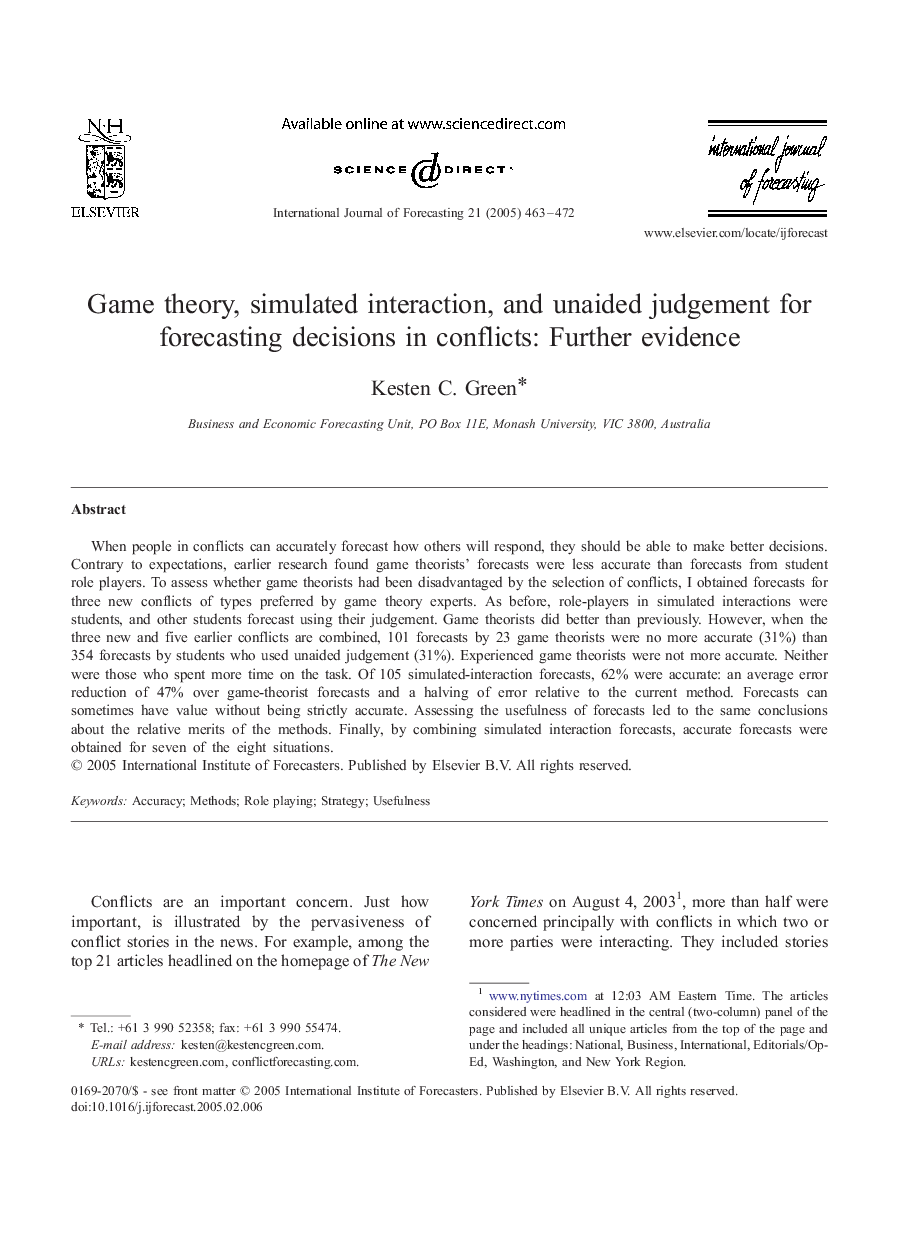| کد مقاله | کد نشریه | سال انتشار | مقاله انگلیسی | نسخه تمام متن |
|---|---|---|---|---|
| 9732532 | 1481480 | 2005 | 10 صفحه PDF | دانلود رایگان |
عنوان انگلیسی مقاله ISI
Game theory, simulated interaction, and unaided judgement for forecasting decisions in conflicts: Further evidence
دانلود مقاله + سفارش ترجمه
دانلود مقاله ISI انگلیسی
رایگان برای ایرانیان
کلمات کلیدی
موضوعات مرتبط
علوم انسانی و اجتماعی
مدیریت، کسب و کار و حسابداری
کسب و کار و مدیریت بین المللی
پیش نمایش صفحه اول مقاله

چکیده انگلیسی
When people in conflicts can accurately forecast how others will respond, they should be able to make better decisions. Contrary to expectations, earlier research found game theorists' forecasts were less accurate than forecasts from student role players. To assess whether game theorists had been disadvantaged by the selection of conflicts, I obtained forecasts for three new conflicts of types preferred by game theory experts. As before, role-players in simulated interactions were students, and other students forecast using their judgement. Game theorists did better than previously. However, when the three new and five earlier conflicts are combined, 101 forecasts by 23 game theorists were no more accurate (31%) than 354 forecasts by students who used unaided judgement (31%). Experienced game theorists were not more accurate. Neither were those who spent more time on the task. Of 105 simulated-interaction forecasts, 62% were accurate: an average error reduction of 47% over game-theorist forecasts and a halving of error relative to the current method. Forecasts can sometimes have value without being strictly accurate. Assessing the usefulness of forecasts led to the same conclusions about the relative merits of the methods. Finally, by combining simulated interaction forecasts, accurate forecasts were obtained for seven of the eight situations.
ناشر
Database: Elsevier - ScienceDirect (ساینس دایرکت)
Journal: International Journal of Forecasting - Volume 21, Issue 3, JulyâSeptember 2005, Pages 463-472
Journal: International Journal of Forecasting - Volume 21, Issue 3, JulyâSeptember 2005, Pages 463-472
نویسندگان
Kesten C. Green,